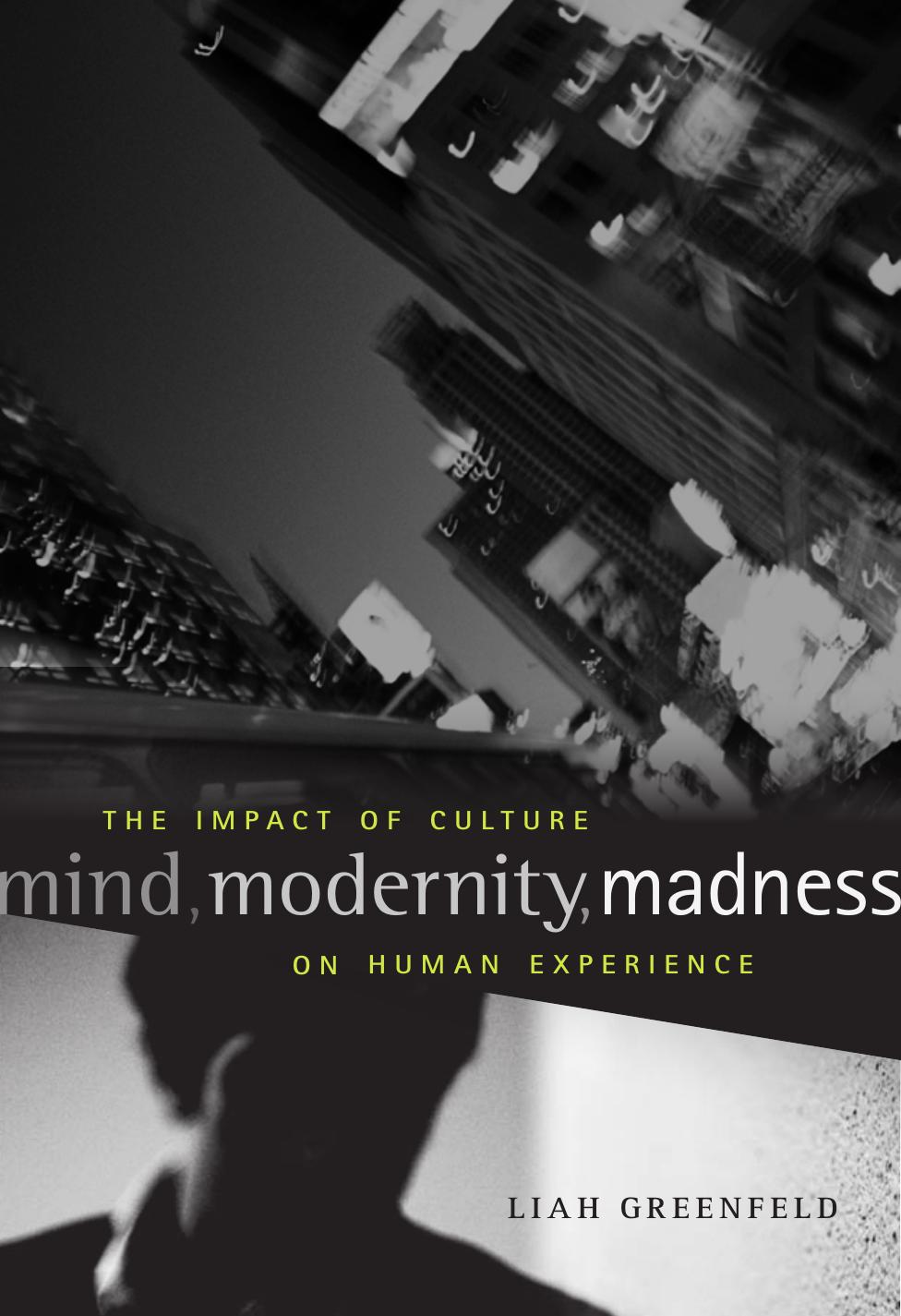Mind, Modernity, Madness by Liah Greenfeld

Author:Liah Greenfeld [Greenfeld, Liah]
Language: eng
Format: epub, pdf
Publisher: Harvard University Press
Published: 2013-04-01T07:00:00+00:00
6
Going International
The Spread of Madness in Europe
English Extravagances and Irish Baile
In the second half of the seventeenth century the word âspleenâ became the vernacular English term for melancholy in the sense of endogenous depression, though it did have numerous synonyms, such as âvapours,â âhysteric fits,â and the âhypâ or âhypo.â The disease itself, âfinally, because of its extraordinary prevalence in England,â writes Cecil A. Moore, came to be regarded as âthe English malady.â1 It is possible that some began to affect it, even if they did not suffer from it in fact, as a national characteristic, the quality that made them what they were. In 1664, a court official and occasional playwright William Killigrew in one of his plays, Pandora, remarked that the condition was âcallâd the spleen of late, and much in fashion.â But in 1690, Sir William Temple, a keen observer, admitted dejectedly: âOur Country must be confessâd to be . . . the Region of Spleenâ: striking a depressed pose could not explain the waste of ever growing number of lives obviously attributable to this peculiar mental illness.2 By the turn of the eighteenth century, constant increase in insanity became one of the central problems in England: it was spreading and getting out of control.
Throughout the eighteenth century, this increase was reflected in legislation; in the establishment of numerous private and public asylums all over the country, where a few decades earlier Bedlam alone was sufficient for ministering to the needs of the afflicted and their families; in the ubiquity of madness in literature. âPerhaps the most striking aspect of literary England in the second half of the eighteenth century,â according to some, âis how many of its best writers themselves became insane.â3 The madness of the poets, in particular, corresponded to the change in the nature of poetry itself, the abandonment of discipline and craftsmanship, the use of blank verseâof course, not universal and which would become much more pronounced in our own time. Samuel Johnson noticed the trend and disapproved of it, believing it willed, and failing to recognize that the unhappy authors bore no responsibility for, and knew not, what they were doing. He remarked acidly regarding the poet William Collins that he âputs his words out of the common order, seeming to think, with some later candidates for fame, that not to write prose is certainly to write poetry.â4 Poets writing in English have continued to go mad ever since: it is hard to find one among those who have achieved fame who has had no brush with one or another variety of schizophrenia. Their remarkable vulnerability to mental disease became a badge of the profession.5 Wordsworth, himself one of the milder cases, wrote: âWe Poets in our youth begin in gladness; / But thereof come in the end despondency and madness.â This predisposition was believed to be universal, and, in the nineteenth century, the father of French psychiatry (or of psychiatry in general, according to the French), Philippe Pinel, was quoted in support of this claim.
Download
This site does not store any files on its server. We only index and link to content provided by other sites. Please contact the content providers to delete copyright contents if any and email us, we'll remove relevant links or contents immediately.
Spare by Prince Harry The Duke of Sussex(5200)
Machine Learning at Scale with H2O by Gregory Keys | David Whiting(4314)
Fairy Tale by Stephen King(3401)
Will by Will Smith(2924)
The Bullet Journal Method by Ryder Carroll(2575)
Hooked: A Dark, Contemporary Romance (Never After Series) by Emily McIntire(2559)
It Starts With Us (It Ends with Us #2) by Colleen Hoover(2370)
Rationality by Steven Pinker(2368)
Can't Hurt Me: Master Your Mind and Defy the Odds - Clean Edition by David Goggins(2344)
Friends, Lovers, and the Big Terrible Thing by Matthew Perry(2234)
The Becoming by Nora Roberts(2207)
Love on the Brain by Ali Hazelwood(2080)
A Short History of War by Jeremy Black(1851)
The Strength In Our Scars by Bianca Sparacino(1847)
HBR's 10 Must Reads 2022 by Harvard Business Review(1847)
A Game of Thrones (The Illustrated Edition) by George R. R. Martin(1751)
Leviathan Falls (The Expanse Book 9) by James S. A. Corey(1747)
515945210 by Unknown(1669)
Bewilderment by Richard Powers(1623)
